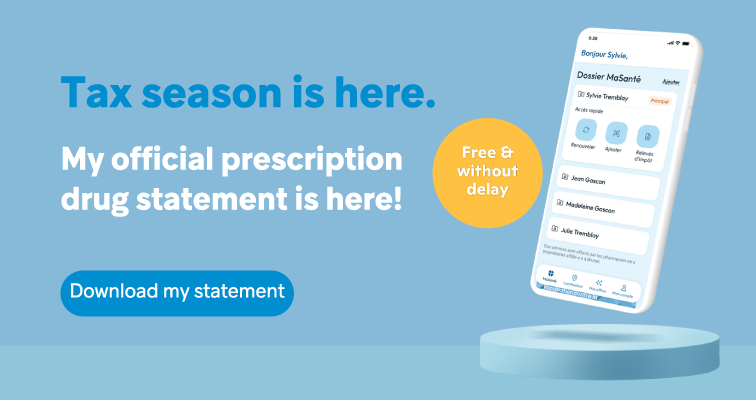The doctor has prescribed you an antidepressant, but you are worried about the side effects it may cause. While it is true that, compared to others, these medications are more likely to have adverse effects, there are several measures to take to tolerate them better.
Antidepressants and their adverse effects
Depression is a difficult time in a person’s life, and medication can be of great help for him or her to enjoy life again. However, all medications can lead to adverse effects, and antidepressants are no exception. But this unpleasant aspect of medication should not prevent someone from taking it if needed since the benefits of antidepressants far outweigh their negative aspects.
Thankfully, patients often gradually start tolerating their medication, which significantly reduces side effects. In addition, there are a few ways to help deal with them. For example, it is common for patients to start taking antidepressants progressively so that the system can slowly get used to their effects. Since side effects are usually linked to the dose taken, each increase phase is easier to go through; in other words, increasing the dose of antidepressants leads to a higher risk of experiencing side effects.
Adverse effects for each medication class
Not all antidepressants have the same adverse effects, and not all adverse effects present the same intensity. As such, some medications are known for causing a specific side effect, even though other agents can also cause it. The first antidepressants to have appeared on the market lead to more adverse effects in people who take them, as opposed to more recent medications, which are therefore the first ones to be prescribed to patients.
Also, because the response to treatment with antidepressants really varies from one person to another, the doctor may feel that a combination of medications is best. Consequently, this may cause more side effects. But what makes this unpredictability in treatment responses easier to deal with is the wide array of antidepressants that are found on the market. This allows a person to switch medications if his or hers is not effective enough or if the person is not tolerating it well. Together, the doctor and patient can find the best treatment to alleviate the symptoms of depression and promote better tolerance.
The most common adverse effects and their management
Although the list of possible adverse effects can seem long, some of them do occur more often. Here are some tips to deal with them as your body slowly builds its tolerance.
|
Side effect |
Management |
|---|---|
|
Dry mouth |
|
|
Constipation |
|
|
Nausea and vomiting |
|
|
Drowsiness |
|
|
Insomnia |
|
|
Low pressure |
|
|
Weight gain |
|
|
Sexual dysfunction |
|
In short, treating depression can vary greatly from one person to the next, just like the adverse effects that can follow. Thankfully, it is possible to manage them properly to minimize their impact on one’s quality of life. These medications can play a very important role in the mental well-being of those who suffer from depression, so their side effects must not become an obstacle to their beneficial effects. The pharmacist is also indispensable in treating depression. He of she can, for instance:
determine whether the experienced side effect is linked to antidepressants;
provide tips to control adverse effects;
discuss adjusting the therapy with the person’s doctor, such as reducing doses, changing medications or adding a measure to fix the situation (like another medication, for example).
Managing the adverse effects of antidepressants is possible, so don’t get discouraged when they occur. Remember how important your mental health and your happiness are; this will help you follow your treatment carefully and motivate you to search for solutions… with the help of your pharmacist, of course!
